Borges and the Bible
Published: May 2015
£50.00
Jorge Luis Borges is the darling of authors and critics who were once described as postmodern. Borges's fictions assail the boundaries between text, world and self. In one sense, the fictions are mere rhetorical games, puzzles, or 'tricks', which disrupt communication (and interpretation), but they also suggest —at least to some —metaphysical uncertainties. To read them is as if one read the fictions of Hume or the Buddha.
Most of the literary and biblical scholars in this volume pair the Bible and its scholarship with one or more of Borges's short fictions (particularly those first collected in English in Ficciones ), but some venture into Borges's essays, poetry, and his life story (as he and others have told it). As to Bibles, some essayists focus on particular texts from the Hebrew Bible (like Genesis, Samuel, Kings or Job) or the Christian New Testament (like Mark, 2 Corinthians, or Revelation), while others engage traditions of interpretation like Gnosticism, the Kabbalah or academic biblical scholarship. Several focus on canon, translation, the craft of fiction, religion or hermeneutics as a way of thinking about Borges and the Bible.
With Borges, interpretation is ubiquitous. Whether consciously fictionalizing or not, all (biblical) interpretation transforms its precursor. All (biblical) interpretation becomes a play with secrecy and revelation. Borgesian Bibles and scholarship are labyrinths, gardens of forking paths, unsettling and distorting mirrors. With Borges, biblical scholars come face to face with their finitude, obsession, fascination, ambivalence, and inevitable heresy vis-à-vis ta biblia.
Borges and the Bible
£50.00
Jorge Luis Borges is the darling of authors and critics who were once described as postmodern. Borges's fictions assail the boundaries between text, world and self. In one sense, the fictions are mere rhetorical games, puzzles, or 'tricks', which disrupt communication (and interpretation), but they also suggest —at least to some —metaphysical uncertainties. To read them is as if one read the fictions of Hume or the Buddha.
Most of the literary and biblical scholars in this volume pair the Bible and its scholarship with one or more of Borges's short fictions (particularly those first collected in English in Ficciones ), but some venture into Borges's essays, poetry, and his life story (as he and others have told it). As to Bibles, some essayists focus on particular texts from the Hebrew Bible (like Genesis, Samuel, Kings or Job) or the Christian New Testament (like Mark, 2 Corinthians, or Revelation), while others engage traditions of interpretation like Gnosticism, the Kabbalah or academic biblical scholarship. Several focus on canon, translation, the craft of fiction, religion or hermeneutics as a way of thinking about Borges and the Bible.
With Borges, interpretation is ubiquitous. Whether consciously fictionalizing or not, all (biblical) interpretation transforms its precursor. All (biblical) interpretation becomes a play with secrecy and revelation. Borgesian Bibles and scholarship are labyrinths, gardens of forking paths, unsettling and distorting mirrors. With Borges, biblical scholars come face to face with their finitude, obsession, fascination, ambivalence, and inevitable heresy vis-à-vis ta biblia.
Trauma Begets Genealogy: Gender and Memory in Chronicles
Published: Apr 2015
£60.00
Establishing a connection to the past while at the same time releasing us into the present is crucial to recalling a traumatic past. Tapping into the Book of Chronicles' genealogies as a memory space, Trauma Begets Genealogy facilitates the transformation of the act of looking back into a key for the present. Using a gender studies perspective, it combines a nuanced analysis of the gendered references in 1 Chronicles 1 —9 with an interdisciplinary approach that conceptualizes genealogies as memory performances and investigates them in diverse media.
The genealogies of Chronicles are here read by Ingeborg Löwisch alongside the post-Holocaust documentary My Life Part 2, in which Berlin film-maker Angelika Levi performs her 'gynealogy' at the intersection of her family archive and of discourses that belong to public memory. While Löwisch's close reading of the gendered fragments in Chronicles attest to fissures in the patrilinear succession, the parallel perception of the film deepens our understanding of gendered genealogies in response to trauma by contributing a full female lineage.
The resulting reassessment of an obscure set of biblical texts leads into the heart of the genealogical tissue and its fascinating ability to respond to a fractured past. This is the eighth volume of the Amsterdam Studies in the Bible and Religion (ed. Athalya Brenner), a sub-series of the Bible in the Modern World and of Hebrew Bible Monographs.
Trauma Begets Genealogy: Gender and Memory in Chronicles
£60.00
Establishing a connection to the past while at the same time releasing us into the present is crucial to recalling a traumatic past. Tapping into the Book of Chronicles' genealogies as a memory space, Trauma Begets Genealogy facilitates the transformation of the act of looking back into a key for the present. Using a gender studies perspective, it combines a nuanced analysis of the gendered references in 1 Chronicles 1 —9 with an interdisciplinary approach that conceptualizes genealogies as memory performances and investigates them in diverse media.
The genealogies of Chronicles are here read by Ingeborg Löwisch alongside the post-Holocaust documentary My Life Part 2, in which Berlin film-maker Angelika Levi performs her 'gynealogy' at the intersection of her family archive and of discourses that belong to public memory. While Löwisch's close reading of the gendered fragments in Chronicles attest to fissures in the patrilinear succession, the parallel perception of the film deepens our understanding of gendered genealogies in response to trauma by contributing a full female lineage.
The resulting reassessment of an obscure set of biblical texts leads into the heart of the genealogical tissue and its fascinating ability to respond to a fractured past. This is the eighth volume of the Amsterdam Studies in the Bible and Religion (ed. Athalya Brenner), a sub-series of the Bible in the Modern World and of Hebrew Bible Monographs.
Interpreting the Text: Essays on the Old Testament, its Reception and its Study, edited by Walter J. Houston and Adrian H.W. Curtis
Published: Apr 2015
£60.00
Roger Tomes (1928 —2011) was a well-known British scholar of the Old Testament, wide-ranging in his interests and meticulous in his scholarship. He was particularly productive after his retirement from his post at Northern College, Manchester, an interdenominational college for ministry training and theological study, and remained an Honorary Research Fellow at the University of Manchester.
He excelled in the conference paper or journal article form, but made no collection of his papers in his lifetime. Two of his Manchester colleagues have here made a selection from both his published essays and his unpublished papers, many of them delivered in the last few years to the Ehrhardt Seminar for biblical research in Manchester. Tomes was always concerned with the relevance of the Bible to the life of the Church, and the earliest essay in the volume, from 1969, is a contribution to the theology of the Old Testament. Others deal with the reception of biblical criticism in theological education in the nineteenth and early twentieth centuries. One of Tomes's abiding concerns was with Jewish —Christian relations; his interests in Jewish interpretation are reflected here in a study of the rabbinic use of the book of Jeremiah, and an essay on the Jewish American poet Emma Lazarus. He was working on the reception history of the story of David at the time of his death, and the fruits of that study are included in the form of two fascinating essays. Besides all this, the book covers a range of topics in the study of the Old Testament, including the deutero-canonical writings, its law and historical writings in particular.
Interpreting the Text: Essays on the Old Testament, its Reception and its Study, edited by Walter J. Houston and Adrian H.W. Curtis
£60.00
Roger Tomes (1928 —2011) was a well-known British scholar of the Old Testament, wide-ranging in his interests and meticulous in his scholarship. He was particularly productive after his retirement from his post at Northern College, Manchester, an interdenominational college for ministry training and theological study, and remained an Honorary Research Fellow at the University of Manchester.
He excelled in the conference paper or journal article form, but made no collection of his papers in his lifetime. Two of his Manchester colleagues have here made a selection from both his published essays and his unpublished papers, many of them delivered in the last few years to the Ehrhardt Seminar for biblical research in Manchester. Tomes was always concerned with the relevance of the Bible to the life of the Church, and the earliest essay in the volume, from 1969, is a contribution to the theology of the Old Testament. Others deal with the reception of biblical criticism in theological education in the nineteenth and early twentieth centuries. One of Tomes's abiding concerns was with Jewish —Christian relations; his interests in Jewish interpretation are reflected here in a study of the rabbinic use of the book of Jeremiah, and an essay on the Jewish American poet Emma Lazarus. He was working on the reception history of the story of David at the time of his death, and the fruits of that study are included in the form of two fascinating essays. Besides all this, the book covers a range of topics in the study of the Old Testament, including the deutero-canonical writings, its law and historical writings in particular.
The Ancient Near East in the Nineteenth Century: I. Claiming and Conquering
Published: Apr 2015
£22.50 – £70.00
At the beginning of the nineteenth century, little was known of the ancient Near East except for what was preserved in the Bible and Classical literature. By the end of that century, an amazing transformation had occurred: the basic outline of ancient Near Eastern history was now understood and the material culture of the region was recognizable to the general public. This three-volume study explores the various ways by which non-specialists would have encountered ancient Egypt, Mesopotamia, and the Holy Land and how they derived and constructed meaning from those discoveries. McGeough challenges the simplistic view that the experience of the ancient Near East was solely a matter of 'othering' and shows how different people claimed the Near East as their own space and how connections were drawn between the ancient and contemporary worlds.
Volume I traces how the study of the ancient Near East developed into a professional discipline and how interpretative frameworks were gradually standardized throughout the nineteenth century. Some of the best-sellers of the period were accounts of the early explorers of the region and, beginning with the Napoleonic expedition, the book examines how ancient Near Eastern discoveries were communicated to the public. It looks at how archaeological reporting was shaped in this period and how the study of the ancient Near East was employed to understand issues of progress and decline and was referenced in the political and social satire of the period. It also documents the growth of middle-class tourism to the region and considers how the changing experiences of travel impacted Near Eastern studies. Throughout, the book observes how the ancient Near East mirrored and subverted British society and played a role in European and North American thinking about their places in a larger global and historical perspective.
The Ancient Near East in the Nineteenth Century: I. Claiming and Conquering
£22.50 – £70.00
At the beginning of the nineteenth century, little was known of the ancient Near East except for what was preserved in the Bible and Classical literature. By the end of that century, an amazing transformation had occurred: the basic outline of ancient Near Eastern history was now understood and the material culture of the region was recognizable to the general public. This three-volume study explores the various ways by which non-specialists would have encountered ancient Egypt, Mesopotamia, and the Holy Land and how they derived and constructed meaning from those discoveries. McGeough challenges the simplistic view that the experience of the ancient Near East was solely a matter of 'othering' and shows how different people claimed the Near East as their own space and how connections were drawn between the ancient and contemporary worlds.
Volume I traces how the study of the ancient Near East developed into a professional discipline and how interpretative frameworks were gradually standardized throughout the nineteenth century. Some of the best-sellers of the period were accounts of the early explorers of the region and, beginning with the Napoleonic expedition, the book examines how ancient Near Eastern discoveries were communicated to the public. It looks at how archaeological reporting was shaped in this period and how the study of the ancient Near East was employed to understand issues of progress and decline and was referenced in the political and social satire of the period. It also documents the growth of middle-class tourism to the region and considers how the changing experiences of travel impacted Near Eastern studies. Throughout, the book observes how the ancient Near East mirrored and subverted British society and played a role in European and North American thinking about their places in a larger global and historical perspective.
The Bad Jesus: The Ethics of New Testament Ethics
Published: Apr 2015
£25.00 – £60.00
Did Jesus ever do anything wrong? Judging by the vast majority of books on New Testament ethics, the answer is a resounding No. Writers on New Testament ethics generally view Jesus as the paradigm of human standards and behaviour. But since the historical Jesus was a human being, must he not have had flaws, like everyone else?
The notion of a flawless human Jesus is a paradoxical oddity in New Testament ethics. According to Avalos, it shows that New Testament ethics is still primarily an apologetic enterprise despite its claim to rest on critical and historical scholarship.
The Bad Jesus is a powerful and challenging study, presenting detailed case studies of fundamental ethical principles enunciated or practised by Jesus but antithetical to what would be widely deemed 'acceptable' or 'good' today. Such topics include Jesus' supposedly innovative teachings on love, along with his views on hate, violence, imperialism, animal rights, environmental ethics, Judaism, women, disabled persons and biblical hermeneutics.
After closely examining arguments offered by those unwilling to find any fault with the Jesus depicted in the Gospels, Avalos concludes that current treatments of New Testament ethics are permeated by a religiocentric, ethnocentric and imperialistic orientation. But if it is to be a credible historical and critical discipline in modern academia, New Testament ethics needs to discover both a Good and a Bad Jesus.
The Bad Jesus: The Ethics of New Testament Ethics
£25.00 – £60.00
Did Jesus ever do anything wrong? Judging by the vast majority of books on New Testament ethics, the answer is a resounding No. Writers on New Testament ethics generally view Jesus as the paradigm of human standards and behaviour. But since the historical Jesus was a human being, must he not have had flaws, like everyone else?
The notion of a flawless human Jesus is a paradoxical oddity in New Testament ethics. According to Avalos, it shows that New Testament ethics is still primarily an apologetic enterprise despite its claim to rest on critical and historical scholarship.
The Bad Jesus is a powerful and challenging study, presenting detailed case studies of fundamental ethical principles enunciated or practised by Jesus but antithetical to what would be widely deemed 'acceptable' or 'good' today. Such topics include Jesus' supposedly innovative teachings on love, along with his views on hate, violence, imperialism, animal rights, environmental ethics, Judaism, women, disabled persons and biblical hermeneutics.
After closely examining arguments offered by those unwilling to find any fault with the Jesus depicted in the Gospels, Avalos concludes that current treatments of New Testament ethics are permeated by a religiocentric, ethnocentric and imperialistic orientation. But if it is to be a credible historical and critical discipline in modern academia, New Testament ethics needs to discover both a Good and a Bad Jesus.
Text, Time, and Temple: Literary, Historical and Ritual Studies in Leviticus
Published: Mar 2015
£60.00
In their different ways the essays in this collection ask, Why was Leviticus written? What is the relation of text to practice, and to the development of the idea of an Israelite society centred in its Temple through all vicissitudes of its history?
The thirteen contributors are engaged in exploring the intersection of literary, historical and ritual approaches to Leviticus, as the central book of the Torah and as a utopian vision of an ideal society. Leading scholars of Leviticus and the Pentateuch, like James Watts, Israel Knohl and Christophe Nihan, combine with others whose primary interest is magic, reception, cultural memory and gender.
The collection begins with a chapter by Michael Hundley on the ancient Near Eastern background of the priestly code and the issue of divine fluidity. Several scholars consider the social function of the book, particularly in the Second Temple period. James Watts, for instance, thinks that it combats scepticism about the efficacy of ritual; Reinhard MÌ_ller argues that the 'I am Yhwh' formula locates the texts in a liturgical setting. Christophe Nihan discusses the manipulation of blood in sacrifice as having an indexical function, as part of the 'templization' of Israel.
Other chapters engage in analyses of particular texts. Leigh Trevaskis advocates a symbolic interpretation of the prohibition of intercourse with a menstruant. Deborah Rooke analyses the gender and ethnic implications of the story of the blasphemer in Leviticus 24. Similarly, Francis Landy compares the chapters on the Nazirite and the woman suspected of adultery as challenges to the sacerdotal order. Jonathan Burnside argues that the prohibition of necromancy is integral to Leviticus 20. The book concludes with a moving reflection by Jeremy Milgrom on his father's views on the ethical implications of his work, and particularly its relevance to Israeli —Palestinian relations.
Text, Time, and Temple: Literary, Historical and Ritual Studies in Leviticus
£60.00
In their different ways the essays in this collection ask, Why was Leviticus written? What is the relation of text to practice, and to the development of the idea of an Israelite society centred in its Temple through all vicissitudes of its history?
The thirteen contributors are engaged in exploring the intersection of literary, historical and ritual approaches to Leviticus, as the central book of the Torah and as a utopian vision of an ideal society. Leading scholars of Leviticus and the Pentateuch, like James Watts, Israel Knohl and Christophe Nihan, combine with others whose primary interest is magic, reception, cultural memory and gender.
The collection begins with a chapter by Michael Hundley on the ancient Near Eastern background of the priestly code and the issue of divine fluidity. Several scholars consider the social function of the book, particularly in the Second Temple period. James Watts, for instance, thinks that it combats scepticism about the efficacy of ritual; Reinhard MÌ_ller argues that the 'I am Yhwh' formula locates the texts in a liturgical setting. Christophe Nihan discusses the manipulation of blood in sacrifice as having an indexical function, as part of the 'templization' of Israel.
Other chapters engage in analyses of particular texts. Leigh Trevaskis advocates a symbolic interpretation of the prohibition of intercourse with a menstruant. Deborah Rooke analyses the gender and ethnic implications of the story of the blasphemer in Leviticus 24. Similarly, Francis Landy compares the chapters on the Nazirite and the woman suspected of adultery as challenges to the sacerdotal order. Jonathan Burnside argues that the prohibition of necromancy is integral to Leviticus 20. The book concludes with a moving reflection by Jeremy Milgrom on his father's views on the ethical implications of his work, and particularly its relevance to Israeli —Palestinian relations.
Jouissance: A Cixousian Encounter with the Song of Songs
Published: Jan 2015
£50.00
This is a remarkable book that sets out to deconstruct academic writing on the Song of Songs. It emerges at that place where biblical scholarship on the Song of Songs is subverted by French literary theory, where biblical literature escapes biblical hermeneutics, and where the ancient poetry of the Song of Songs comes face to face with the modern poetry of Hélène Cixous. The question asked is whether a poetic text like the Song of Songs can be systematized, interpreted and worked out. For as much as Jouissance is a work on the Song of Songs, it is also a work about reading poetically, challenging the notion that the Song of Songs can be read at all.
In response the reader-author presents an-'other' kind of reading. She inhabits the text of the Song of Songs, bringing herself to it; allowing herself to be taken in its jaws, one time, and once only, and then giving it away and refusing possession. If this could be called reading, it would be live-reading: a reading of the Song of Songs that is birthed and dreamed, that joins breath with breath. This is a reading that is allowed to live.
The reader is invited via the midwifery of Hélène Cixous's poetic texts to encounter the enigmatic poetry of the Song of Songs, its creative and transformative polysemy, engendering a 'third body', third text, that is reflective and multivalent, inscripted with elements that are continuous and discontinuous, as well as dynamic, mythic and subversive. Read in the spirit of Cixousian literary theory, Jouissance is a visceral-corporeal experience of the transgressive and creative act of the Song of Songs that merges the limits of language with the bliss and suffering of the beyond.
Jouissance: A Cixousian Encounter with the Song of Songs
£50.00
This is a remarkable book that sets out to deconstruct academic writing on the Song of Songs. It emerges at that place where biblical scholarship on the Song of Songs is subverted by French literary theory, where biblical literature escapes biblical hermeneutics, and where the ancient poetry of the Song of Songs comes face to face with the modern poetry of Hélène Cixous. The question asked is whether a poetic text like the Song of Songs can be systematized, interpreted and worked out. For as much as Jouissance is a work on the Song of Songs, it is also a work about reading poetically, challenging the notion that the Song of Songs can be read at all.
In response the reader-author presents an-'other' kind of reading. She inhabits the text of the Song of Songs, bringing herself to it; allowing herself to be taken in its jaws, one time, and once only, and then giving it away and refusing possession. If this could be called reading, it would be live-reading: a reading of the Song of Songs that is birthed and dreamed, that joins breath with breath. This is a reading that is allowed to live.
The reader is invited via the midwifery of Hélène Cixous's poetic texts to encounter the enigmatic poetry of the Song of Songs, its creative and transformative polysemy, engendering a 'third body', third text, that is reflective and multivalent, inscripted with elements that are continuous and discontinuous, as well as dynamic, mythic and subversive. Read in the spirit of Cixousian literary theory, Jouissance is a visceral-corporeal experience of the transgressive and creative act of the Song of Songs that merges the limits of language with the bliss and suffering of the beyond.
Envisioning the Book of Judith: How Art Illuminates Minor Characters
Published: Nov 2014
£50.00
The Book of Judith, the Apocryphal narrative of the Jewish widow who becomes a guerilla solider and headhunting hero, has fascinated and inspired readers over centuries. Weaving together literary and visual approaches, Sheaffer argues that this is a story of unconventionality and unexpected heroism demonstrated not only by Judith, but also by the minor characters in the text: an Israelite enemy displays the most faith in Israel's God when Israel's own leaders show the least; a nameless, voiceless slave woman prepares the way for her mistress's success in rescuing Israel from Assyrian domination.
Sheaffer's interdisciplinary study is the first to combine literary and visual criticism to illuminate the role and function of minor characters in the Book of Judith. Utilizing Renaissance and Baroque images as a starting point, she is able to show how minor characters function in a variety of roles in the text. They are forerunners, sustainers, inciters, and avatars of the major characters.
The conclusion drawn from this study is that minor characters are indispensable in aiding Judith's mission. In the biblical text, God uses Judith —considered the weakest in society because of her status as a widow —as an instrument of God's power over the enemy. Sheaffer shows that minor characters belong in the spotlight alongside the protagonist in the category of unlikely hero/helpers, emphasizing a fundamental theme in the narrative in which the underdog is championed. This approach paints fresh and enriched textual interpretation onto the canvases of Judith and the field of biblical studies alike.
Envisioning the Book of Judith contains 29 illustrations in colour.
Envisioning the Book of Judith: How Art Illuminates Minor Characters
£50.00
The Book of Judith, the Apocryphal narrative of the Jewish widow who becomes a guerilla solider and headhunting hero, has fascinated and inspired readers over centuries. Weaving together literary and visual approaches, Sheaffer argues that this is a story of unconventionality and unexpected heroism demonstrated not only by Judith, but also by the minor characters in the text: an Israelite enemy displays the most faith in Israel's God when Israel's own leaders show the least; a nameless, voiceless slave woman prepares the way for her mistress's success in rescuing Israel from Assyrian domination.
Sheaffer's interdisciplinary study is the first to combine literary and visual criticism to illuminate the role and function of minor characters in the Book of Judith. Utilizing Renaissance and Baroque images as a starting point, she is able to show how minor characters function in a variety of roles in the text. They are forerunners, sustainers, inciters, and avatars of the major characters.
The conclusion drawn from this study is that minor characters are indispensable in aiding Judith's mission. In the biblical text, God uses Judith —considered the weakest in society because of her status as a widow —as an instrument of God's power over the enemy. Sheaffer shows that minor characters belong in the spotlight alongside the protagonist in the category of unlikely hero/helpers, emphasizing a fundamental theme in the narrative in which the underdog is championed. This approach paints fresh and enriched textual interpretation onto the canvases of Judith and the field of biblical studies alike.
Envisioning the Book of Judith contains 29 illustrations in colour.
When Men Were Not Men: Masculinity and Otherness in the Pastoral Epistles
Published: Nov 2014
£50.00
We are almost never encouraged in contemporary exegesis of the Pastoral Epistles to take the side of those 'dubious' and 'deviant' characters against whom our biblical author sets himself. When Men Were Not Men: Masculinity and Otherness in the Pastoral Epistles dares to give voice to those 'others' as a way to challenge the Pastor's (and his allies) 'performance' of masculinity. By deliberately highlighting texts where issues of masculinity, gender, power, race, money, (ab)use of religion and otherness are present in the Pastoral Epistles, Villalobos meticulously gazes upon bodies that have been marked as other by the sexist, racist, and homophobic abuse of these texts.
Why does the author of the PE constantly situate the 'others' in the place where Satan reigns? Why does he constantly repeat that those 'others' have deviated so greatly from the Pastor's right teaching? Why is he so obsessed with presenting himself as the legitimate promoter of right teaching? Why is the Pastor so eager to maintain the hierarchical household that privileges male over female, free bodies over slaves, manly men over effeminate bodies?
These are some of the questions Villalobos addresses in When Men Were Not Men. He shows that all these questions have to do with issues of masculinity and the proper performance of being a 'real man'. He concludes that in fact no one even among the inner circle of the author's friends was a model of pure masculinity, and that they themselves not infrequently demonstrate the kinds of behaviour he himself inveighs against.
When Men Were Not Men: Masculinity and Otherness in the Pastoral Epistles
£50.00
We are almost never encouraged in contemporary exegesis of the Pastoral Epistles to take the side of those 'dubious' and 'deviant' characters against whom our biblical author sets himself. When Men Were Not Men: Masculinity and Otherness in the Pastoral Epistles dares to give voice to those 'others' as a way to challenge the Pastor's (and his allies) 'performance' of masculinity. By deliberately highlighting texts where issues of masculinity, gender, power, race, money, (ab)use of religion and otherness are present in the Pastoral Epistles, Villalobos meticulously gazes upon bodies that have been marked as other by the sexist, racist, and homophobic abuse of these texts.
Why does the author of the PE constantly situate the 'others' in the place where Satan reigns? Why does he constantly repeat that those 'others' have deviated so greatly from the Pastor's right teaching? Why is he so obsessed with presenting himself as the legitimate promoter of right teaching? Why is the Pastor so eager to maintain the hierarchical household that privileges male over female, free bodies over slaves, manly men over effeminate bodies?
These are some of the questions Villalobos addresses in When Men Were Not Men. He shows that all these questions have to do with issues of masculinity and the proper performance of being a 'real man'. He concludes that in fact no one even among the inner circle of the author's friends was a model of pure masculinity, and that they themselves not infrequently demonstrate the kinds of behaviour he himself inveighs against.
Tales of Posthumanity: The Bible and Contemporary Popular Culture
Published: Oct 2014
£50.00
Images and concepts of the ‘posthuman’ go back at least as far as the famous ‘madman parable’ in F. Nietzsche’s The Gay Science, and their ‘roots’ go back much further still. In turn, the image or theme of the posthuman has played an increasingly important role in recent literature, film, and television, where the notion of humanity as a ‘larval being’ (G. Deleuze) that transforms itself or is being transformed into something else, for better or worse, has become increasingly common.
This book explores these concepts in relation to biblical texts, particularly texts from the gospel of Mark but also from the books of Daniel, Jonah and Qoheleth (Ecclesiastes), and the Acts of the Apostles. At the same time, texts from recent popular culture are examined, including novels by J. Morrow, C. Miéville and G. Ryman, the movies Local Hero and Lars and the Real Girl, and the Heroes TV series among others.
Through a kind of inverted causality, recent texts in various media such as these transform earlier and otherwise unrelated ones, including biblical texts, into precursors, giving them new, postmodern meanings, just as the older texts once signified in still other ways before the advent of the familiar modern world. As a result, biblical texts signify in remarkably different ways in relation to the posthuman. Posthuman beings appear in both biblical and non-biblical texts, and the biblical phrase ‘sons of men’ (in both plural and singular versions) plays a crucial role, where it too takes on meanings that range far beyond the conventional or traditional ones.
Tales of Posthumanity: The Bible and Contemporary Popular Culture
£50.00
Images and concepts of the ‘posthuman’ go back at least as far as the famous ‘madman parable’ in F. Nietzsche’s The Gay Science, and their ‘roots’ go back much further still. In turn, the image or theme of the posthuman has played an increasingly important role in recent literature, film, and television, where the notion of humanity as a ‘larval being’ (G. Deleuze) that transforms itself or is being transformed into something else, for better or worse, has become increasingly common.
This book explores these concepts in relation to biblical texts, particularly texts from the gospel of Mark but also from the books of Daniel, Jonah and Qoheleth (Ecclesiastes), and the Acts of the Apostles. At the same time, texts from recent popular culture are examined, including novels by J. Morrow, C. Miéville and G. Ryman, the movies Local Hero and Lars and the Real Girl, and the Heroes TV series among others.
Through a kind of inverted causality, recent texts in various media such as these transform earlier and otherwise unrelated ones, including biblical texts, into precursors, giving them new, postmodern meanings, just as the older texts once signified in still other ways before the advent of the familiar modern world. As a result, biblical texts signify in remarkably different ways in relation to the posthuman. Posthuman beings appear in both biblical and non-biblical texts, and the biblical phrase ‘sons of men’ (in both plural and singular versions) plays a crucial role, where it too takes on meanings that range far beyond the conventional or traditional ones.
Deuteronomy and Environmental Amnesia
Published: Sep 2014
£45.00
Modern Westerners suffer from environmental amnesia, our failure to remember properly our intimate connections to the places in our lives and to the other inhabitants of these places, both human and non-human. Although environmental amnesia may be the underlying diagnosis of our contemporary ecological problems, in Deuteronomy and Environmental Amnesia Raymond Person argues that environmental amnesia has roots in ancient Mesopotamia, the cradle of civilization, and that ancient forms of environmental amnesia are evident in the book of Deuteronomy.
Raymond Person combines the ecological hermeneutics of the Earth Bible project for the first time with an emerging approach in environmental philosophy —that is, environmental hermeneutics which draws significantly from the works of Heidegger, Gadamer, Habermas and Ricoeur. As he explores the presence of ancient forms of environmental amnesia in Deuteronomy, he draws extensively from other approaches to the ancient Near East and the Bible that emphasize the interactions between material culture and text and that take seriously the Other as portrayed in the Bible, especially household archaeology, zooarchaeology, feminist approaches, and postcolonial approaches. His analysis discovers not only forms of environmental amnesia that the Deuteronomic school suffered from and promoted ideologically, but also partial remedies for forms of ancient environmental amnesia in some of the Deuteronomic legislation. His reflection on environmental amnesia and its partial remedies in the text of Deuteronomy provides insights into our modern forms of environmental amnesia and how we may begin to lessen its effects on the Earth community.
Between the introduction and conclusion, the volume contains two parts. The first part consists of chapters on how environmental amnesia exists in various themes in Deuteronomy: the family household, land versus wilderness, Israel versus the nations, clean versus unclean animals, and urban versus rural. The second part is somewhat more like a traditional commentary, focusing on themes in selected passages, including herem in Deut. 7.1-26, the sabbath year in Deut. 15.1-18, war in Deut. 20.1-20, first-fruits and the third-year tithe in Deut. 26.1-19, and eschatology in Deut. 28.1-68 and 30.1-20.
Deuteronomy and Environmental Amnesia
£45.00
Modern Westerners suffer from environmental amnesia, our failure to remember properly our intimate connections to the places in our lives and to the other inhabitants of these places, both human and non-human. Although environmental amnesia may be the underlying diagnosis of our contemporary ecological problems, in Deuteronomy and Environmental Amnesia Raymond Person argues that environmental amnesia has roots in ancient Mesopotamia, the cradle of civilization, and that ancient forms of environmental amnesia are evident in the book of Deuteronomy.
Raymond Person combines the ecological hermeneutics of the Earth Bible project for the first time with an emerging approach in environmental philosophy —that is, environmental hermeneutics which draws significantly from the works of Heidegger, Gadamer, Habermas and Ricoeur. As he explores the presence of ancient forms of environmental amnesia in Deuteronomy, he draws extensively from other approaches to the ancient Near East and the Bible that emphasize the interactions between material culture and text and that take seriously the Other as portrayed in the Bible, especially household archaeology, zooarchaeology, feminist approaches, and postcolonial approaches. His analysis discovers not only forms of environmental amnesia that the Deuteronomic school suffered from and promoted ideologically, but also partial remedies for forms of ancient environmental amnesia in some of the Deuteronomic legislation. His reflection on environmental amnesia and its partial remedies in the text of Deuteronomy provides insights into our modern forms of environmental amnesia and how we may begin to lessen its effects on the Earth community.
Between the introduction and conclusion, the volume contains two parts. The first part consists of chapters on how environmental amnesia exists in various themes in Deuteronomy: the family household, land versus wilderness, Israel versus the nations, clean versus unclean animals, and urban versus rural. The second part is somewhat more like a traditional commentary, focusing on themes in selected passages, including herem in Deut. 7.1-26, the sabbath year in Deut. 15.1-18, war in Deut. 20.1-20, first-fruits and the third-year tithe in Deut. 26.1-19, and eschatology in Deut. 28.1-68 and 30.1-20.
Recent Research on Revelation
Published: Sep 2014
£60.00
Perhaps no other biblical book has been the source of as much consternation to its readers as the Revelation of John of Patmos. Their distress has been accentuated by popular approaches, which often advance sensationalist visions of the future. But did John's vision focus on the distant future, or was it directed to concerns of his own day? If it was directed to his own situation in Roman Asia Minor, what lasting significance, if any, does it have for people two thousand years after the composition of the work?
Recent Research on Revelation is an ambitious attempt to comprehend the great range of scholarly views on the Apocalypse. Avoiding popular and sensational readings of Revelation, this book outlines how scholars of various stripes grapple with John's dramatic and often disturbing book. Beginning with a historical survey of scholarly opinion, the book examines the question of what form of literature Revelation is. It then offers an overview of various methods used to interpret the Apocalypse, ranging from traditional historical-critical analysis to feminist and postcolonial criticisms.
The Apocalypse continues to evoke strong reactions in its readers, both positive and negative, from comfort to perplexity to revulsion. At the very least, it stimulates readers' interest to an extent not surpassed by any other New Testament book. We cannot shut our eyes to John's vision, for it has had too much impact on who we are, whether Christian or not.
Recent Research on Revelation
£60.00
Perhaps no other biblical book has been the source of as much consternation to its readers as the Revelation of John of Patmos. Their distress has been accentuated by popular approaches, which often advance sensationalist visions of the future. But did John's vision focus on the distant future, or was it directed to concerns of his own day? If it was directed to his own situation in Roman Asia Minor, what lasting significance, if any, does it have for people two thousand years after the composition of the work?
Recent Research on Revelation is an ambitious attempt to comprehend the great range of scholarly views on the Apocalypse. Avoiding popular and sensational readings of Revelation, this book outlines how scholars of various stripes grapple with John's dramatic and often disturbing book. Beginning with a historical survey of scholarly opinion, the book examines the question of what form of literature Revelation is. It then offers an overview of various methods used to interpret the Apocalypse, ranging from traditional historical-critical analysis to feminist and postcolonial criticisms.
The Apocalypse continues to evoke strong reactions in its readers, both positive and negative, from comfort to perplexity to revulsion. At the very least, it stimulates readers' interest to an extent not surpassed by any other New Testament book. We cannot shut our eyes to John's vision, for it has had too much impact on who we are, whether Christian or not.
Recent Research on the Historical Jesus
Published: Sep 2014
£60.00
Over the past two hundred years, several have ventured to write a history of Jesus, but few have discussed their method of writing about the past with any depth. Unspoken assumptions or bias often dictate what the historian will find. The fact that there are so many conflicting pictures of Jesus compounds the problem. In the last thirty years of Jesus research, which have been identified as the Third Quest for the historical Jesus, historians have agreed that Jesus makes the most sense within a Jewish context, a setting that allows historians to write about Jesus from various historical approaches.
Simpson addresses the issue of method in historical Jesus research by looking at two prominent historians within the Third Quest —John Meier and James Dunn. Both Meier and Dunn typify distinct approaches to the historical Jesus, and both claim to be a part of the Third Quest. Simpson analyses their philosophy of history and historical method. In the second part of the book, Simpson looks at how Meier and Dunn handle certain key events in the life of Jesus. The treatment of these events serves as a way of highlighting the drawbacks and advantages of each method.
These distinct approaches point to the tensions that make up the Third Quest and illustrate how the concerns of recent research, evolving over a short period of time, have brought old questions to the surface in new ways. By describing the current situation of historical Jesus research as evidenced by Meier and Dunn, Simpson maps out some promising lines of future research.
Recent Research on the Historical Jesus
£60.00
Over the past two hundred years, several have ventured to write a history of Jesus, but few have discussed their method of writing about the past with any depth. Unspoken assumptions or bias often dictate what the historian will find. The fact that there are so many conflicting pictures of Jesus compounds the problem. In the last thirty years of Jesus research, which have been identified as the Third Quest for the historical Jesus, historians have agreed that Jesus makes the most sense within a Jewish context, a setting that allows historians to write about Jesus from various historical approaches.
Simpson addresses the issue of method in historical Jesus research by looking at two prominent historians within the Third Quest —John Meier and James Dunn. Both Meier and Dunn typify distinct approaches to the historical Jesus, and both claim to be a part of the Third Quest. Simpson analyses their philosophy of history and historical method. In the second part of the book, Simpson looks at how Meier and Dunn handle certain key events in the life of Jesus. The treatment of these events serves as a way of highlighting the drawbacks and advantages of each method.
These distinct approaches point to the tensions that make up the Third Quest and illustrate how the concerns of recent research, evolving over a short period of time, have brought old questions to the surface in new ways. By describing the current situation of historical Jesus research as evidenced by Meier and Dunn, Simpson maps out some promising lines of future research.
Finding Wisdom in Nature: An Eco-Wisdom Reading of the Book of Job
Published: Sep 2014
£40.00
Wisdom, where can she be found?' This question, at the core of Job 28, is arguably the central question also of the entire book of Job.
Where is Wisdom found in Job 28? Habel's answer may be surprising: in the domains and forces of nature, in the ecosystems of the cosmos! And who employs the 'scientific approach' of the ancient Wisdom School to discern this Wisdom? A Sage called God during the process of creation. This key chapter, Job 28, is therefore where Habel begins his ecological commentary, using an approach he designates an eco-wisdom reading.
In the preceding 27 chapters of the Book of Job, the focus had seemed to be on the question of where justice could be found. Job has been ready to take God to court in order to find justice. Yet, throughout these chapters there has also been a question about Wisdom, raised by Job and each of his friends, though it has remained churning in the background.
When God finally answers Job, God communicates —via nature —about the 'design' of the cosmos. During his journey through the cosmos with his divine mentor, depicted in the divine speeches of Job 38 —41, Job is challenged to discern the 'way,' the 'place' and the inter-relationship of the domains and forces of nature, which is to say, their dynamic innate Wisdom.
In his final speech, Job admits he does not know everything and dismisses his plan to take God to court, and the claim for justice lapses. In its place, Job declares he has 'seen' or 'observed' God —presumably in the ecosystems of the cosmos that God has shown him. So the Book of Job ends with his experience of what we may call an 'ecological conversion'.
Finding Wisdom in Nature: An Eco-Wisdom Reading of the Book of Job
£40.00
Wisdom, where can she be found?' This question, at the core of Job 28, is arguably the central question also of the entire book of Job.
Where is Wisdom found in Job 28? Habel's answer may be surprising: in the domains and forces of nature, in the ecosystems of the cosmos! And who employs the 'scientific approach' of the ancient Wisdom School to discern this Wisdom? A Sage called God during the process of creation. This key chapter, Job 28, is therefore where Habel begins his ecological commentary, using an approach he designates an eco-wisdom reading.
In the preceding 27 chapters of the Book of Job, the focus had seemed to be on the question of where justice could be found. Job has been ready to take God to court in order to find justice. Yet, throughout these chapters there has also been a question about Wisdom, raised by Job and each of his friends, though it has remained churning in the background.
When God finally answers Job, God communicates —via nature —about the 'design' of the cosmos. During his journey through the cosmos with his divine mentor, depicted in the divine speeches of Job 38 —41, Job is challenged to discern the 'way,' the 'place' and the inter-relationship of the domains and forces of nature, which is to say, their dynamic innate Wisdom.
In his final speech, Job admits he does not know everything and dismisses his plan to take God to court, and the claim for justice lapses. In its place, Job declares he has 'seen' or 'observed' God —presumably in the ecosystems of the cosmos that God has shown him. So the Book of Job ends with his experience of what we may call an 'ecological conversion'.
Discourse, Dialogue, and Debate in the Bible: Essays in Honour of Frank H. Polak
Published: Aug 2014
£70.00
Frank H. Polak's contributions to Biblical Studies cover many fields, from Septuagint and Qumran studies to many other disciplines. His most important contributions in recent decades, however, have been to the narrative criticism and discourse analysis of the Bible, including their application to issues of date and authorship, which have been debated since ancient times.
Polak's work is informed by many branches of general and Semitic linguistics, social anthropology and historiography, along with a broad, humanistic approach. In his work, he has attempted to balance literary, linguistic and historical criticism in order to achieve a synthesis of these separate but overlapping fields, all of them necessary for reading the Hebrew Bible in a responsible manner.
This volume is offered to Frank by friends and colleagues from Tel Aviv University, where he has taught for almost 40 years, and from other academic institutions, in honour of his illustrious career and on the occasion of his retirement from teaching. The contributors all debate questions of discourse, dialogue, language and history —questions that have been central to Frank's researches over the years.
This is the seventh volume of the Amsterdam Studies in the Bible and Religion (ed. Athalya Brenner-Idan), a sub-series of the Bible in the Modern World and Hebrew Bible Monographs.
Discourse, Dialogue, and Debate in the Bible: Essays in Honour of Frank H. Polak
£70.00
Frank H. Polak's contributions to Biblical Studies cover many fields, from Septuagint and Qumran studies to many other disciplines. His most important contributions in recent decades, however, have been to the narrative criticism and discourse analysis of the Bible, including their application to issues of date and authorship, which have been debated since ancient times.
Polak's work is informed by many branches of general and Semitic linguistics, social anthropology and historiography, along with a broad, humanistic approach. In his work, he has attempted to balance literary, linguistic and historical criticism in order to achieve a synthesis of these separate but overlapping fields, all of them necessary for reading the Hebrew Bible in a responsible manner.
This volume is offered to Frank by friends and colleagues from Tel Aviv University, where he has taught for almost 40 years, and from other academic institutions, in honour of his illustrious career and on the occasion of his retirement from teaching. The contributors all debate questions of discourse, dialogue, language and history —questions that have been central to Frank's researches over the years.
This is the seventh volume of the Amsterdam Studies in the Bible and Religion (ed. Athalya Brenner-Idan), a sub-series of the Bible in the Modern World and Hebrew Bible Monographs.
Moses: The Man and the Myth in Music
Published: July 2014
£50.00
With this book, Leneman completes a trilogy on musical interpretations of biblical narratives. Her previous books were Love, Lust, and Lunacy: The Stories of Saul and David in Music (2010) and The Performed Bible: The Story of Ruth in Opera and Oratorio (2007).
Moses has often been thought of more as a myth than as a man. Later retellings of his story —particularly in operas and oratorios —demythologize him, portraying him and all the characters surrounding him on a more human scale. Moses the statue comes down from his pedestal and becomes a living man. For example, in the Bible the primary relationship of Moses is with God; secondarily it is with the people of Israel, rather than with individuals. In opera and the many oratorio settings the figure of Moses is enhanced by his representation as a man with many emotional ties —to Zipporah, Miriam or Aaron, or to all three.
Re-reading and re-telling biblical narratives through musical settings gives voice to often silent biblical characters, offering the reader and listener unexpected ways to hear and understand their story. In Moses: The Man and the Myth in Music, highlighting how Moses was richly imagined in oratorios and operas, Leneman discusses 16 operas and oratorios from the eighteenth to the twentieth century —including works by Handel, Rossini, Saint-Saëns, Massenet, Schoenberg and more obscure composers whose music has seldom or never been explored.
Through music, the listener can hear and also feel the suffering of the Israelites; the passion of Moses as leader, liberator, and even lover; the intensity of Miriam's vision and commitment; and the whole range of emotion experienced by every character that inhabits this story. The music and librettos not only fill in the spaces between the lines, but go beyond the margins of the biblical text to conjure up a multi-dimensional world.
Moses: The Man and the Myth in Music
£50.00
With this book, Leneman completes a trilogy on musical interpretations of biblical narratives. Her previous books were Love, Lust, and Lunacy: The Stories of Saul and David in Music (2010) and The Performed Bible: The Story of Ruth in Opera and Oratorio (2007).
Moses has often been thought of more as a myth than as a man. Later retellings of his story —particularly in operas and oratorios —demythologize him, portraying him and all the characters surrounding him on a more human scale. Moses the statue comes down from his pedestal and becomes a living man. For example, in the Bible the primary relationship of Moses is with God; secondarily it is with the people of Israel, rather than with individuals. In opera and the many oratorio settings the figure of Moses is enhanced by his representation as a man with many emotional ties —to Zipporah, Miriam or Aaron, or to all three.
Re-reading and re-telling biblical narratives through musical settings gives voice to often silent biblical characters, offering the reader and listener unexpected ways to hear and understand their story. In Moses: The Man and the Myth in Music, highlighting how Moses was richly imagined in oratorios and operas, Leneman discusses 16 operas and oratorios from the eighteenth to the twentieth century —including works by Handel, Rossini, Saint-Saëns, Massenet, Schoenberg and more obscure composers whose music has seldom or never been explored.
Through music, the listener can hear and also feel the suffering of the Israelites; the passion of Moses as leader, liberator, and even lover; the intensity of Miriam's vision and commitment; and the whole range of emotion experienced by every character that inhabits this story. The music and librettos not only fill in the spaces between the lines, but go beyond the margins of the biblical text to conjure up a multi-dimensional world.

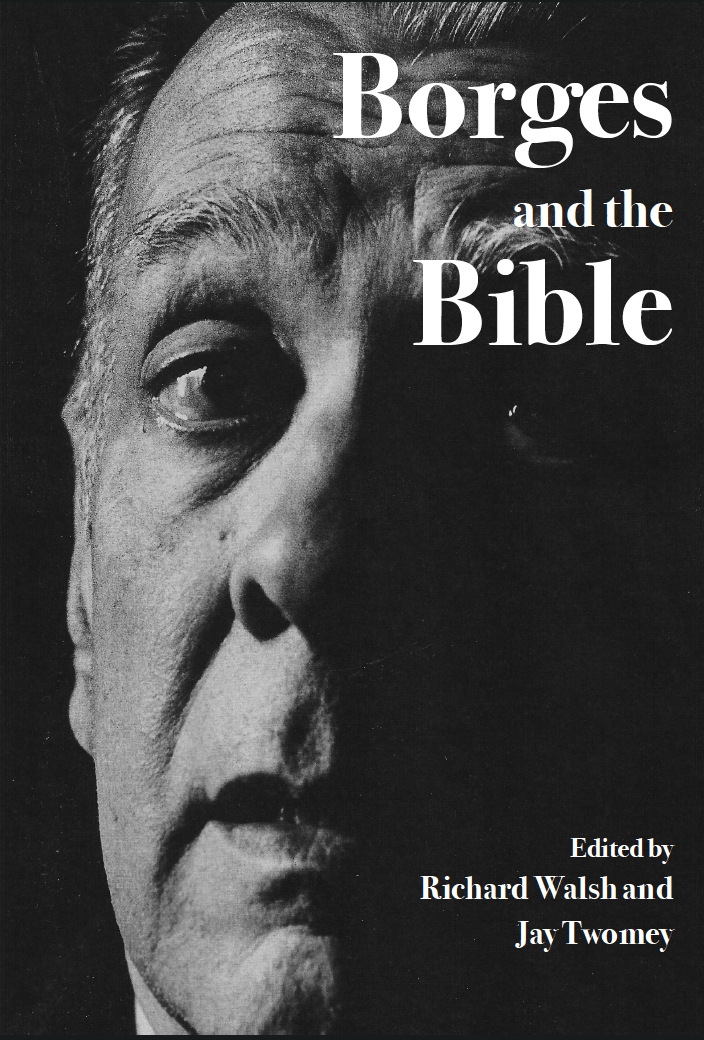
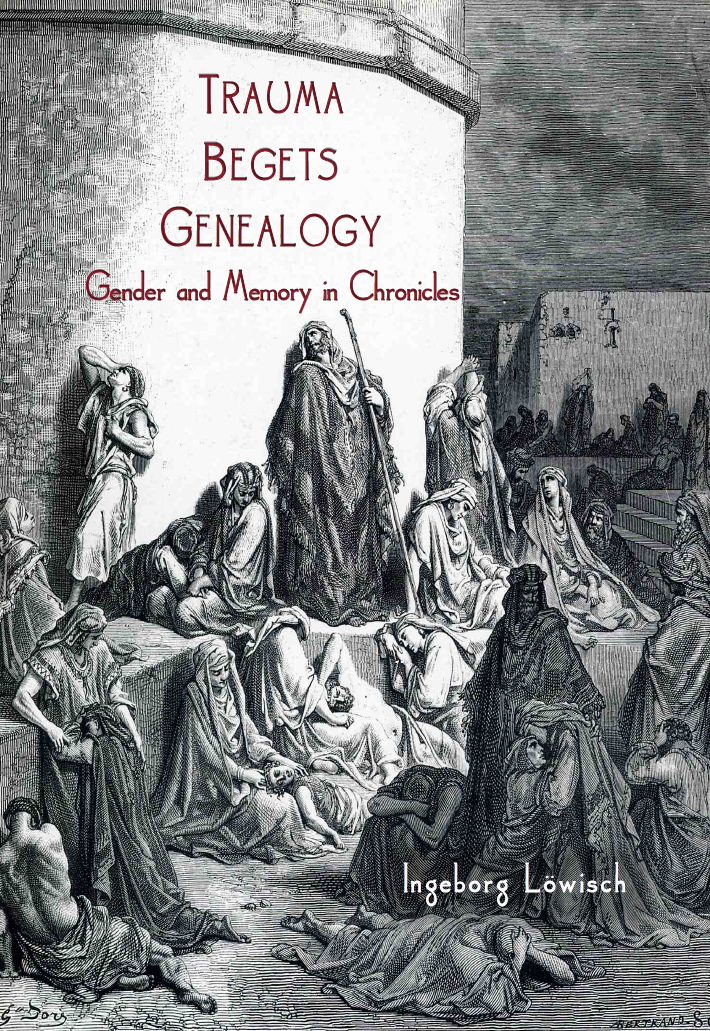

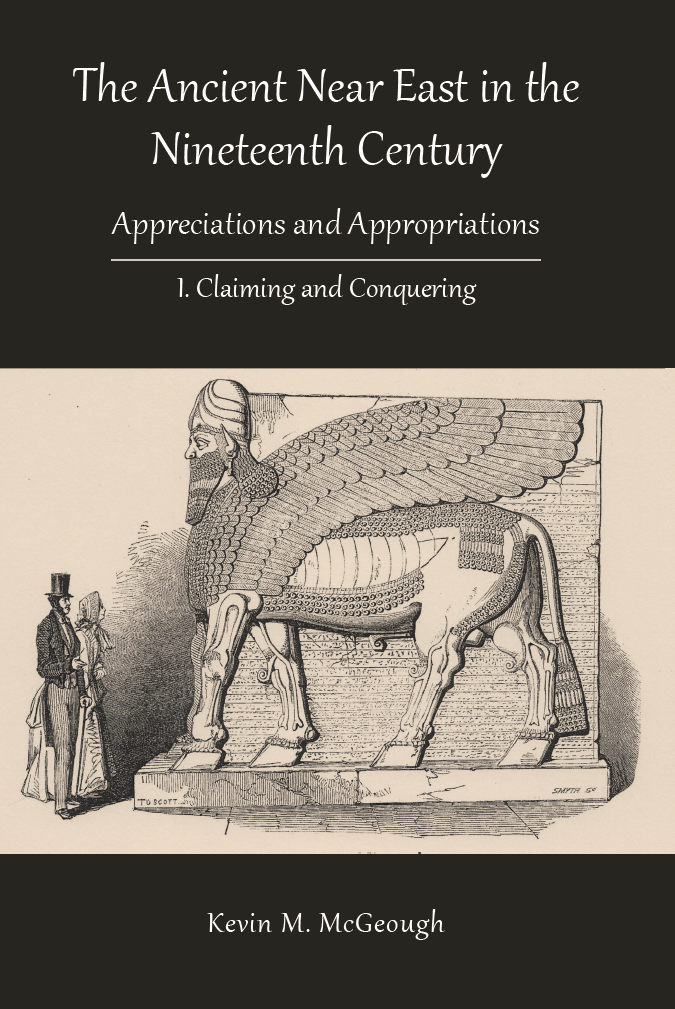
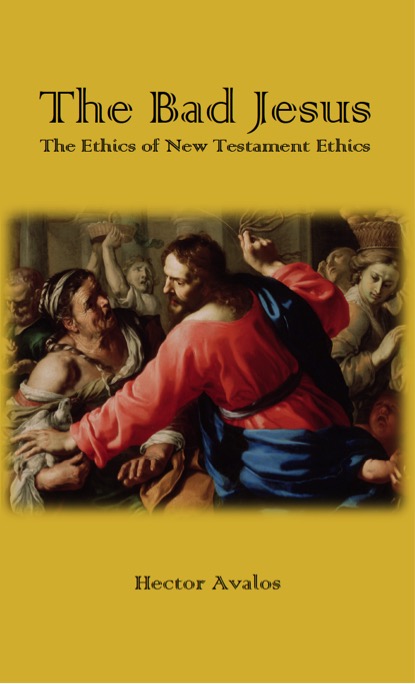
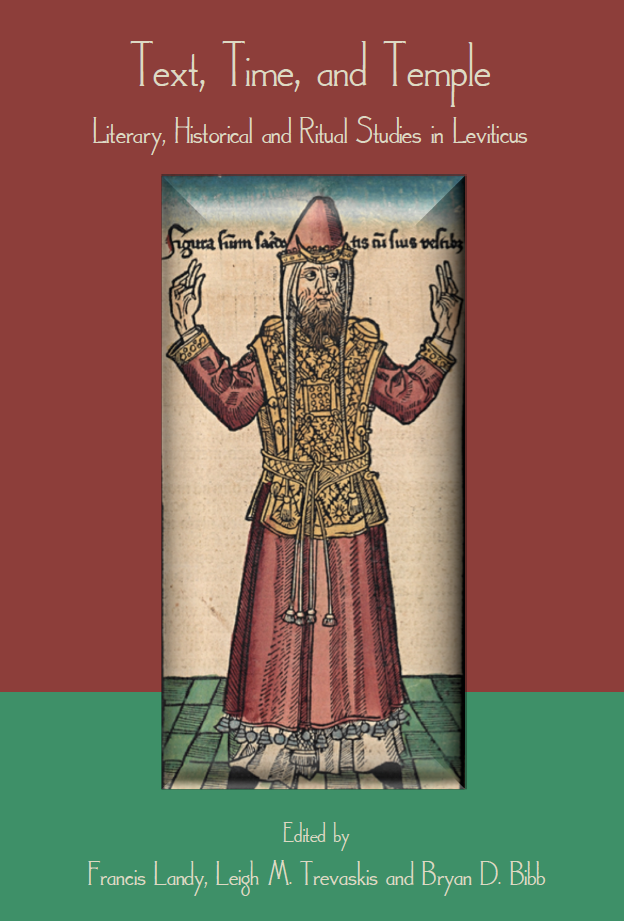
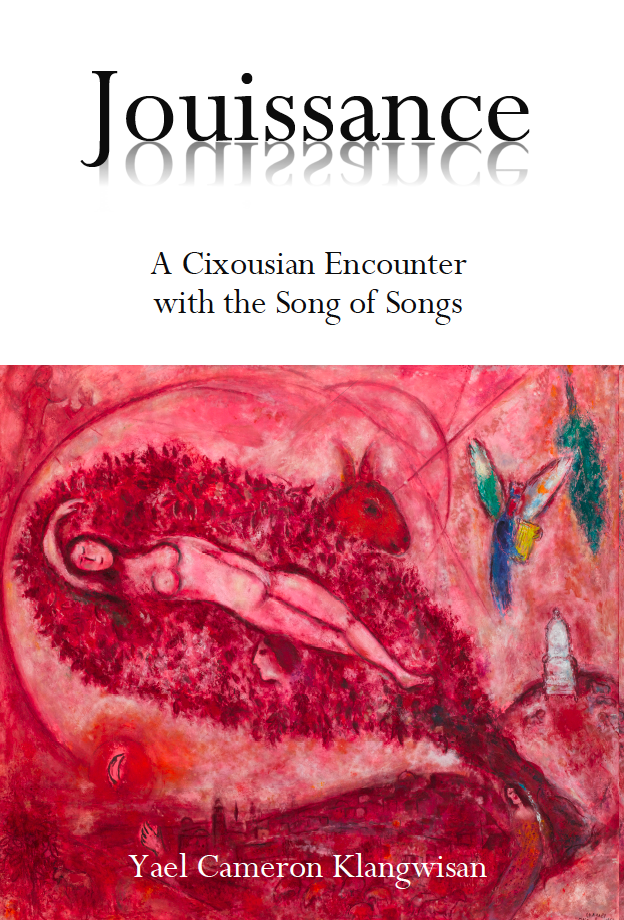
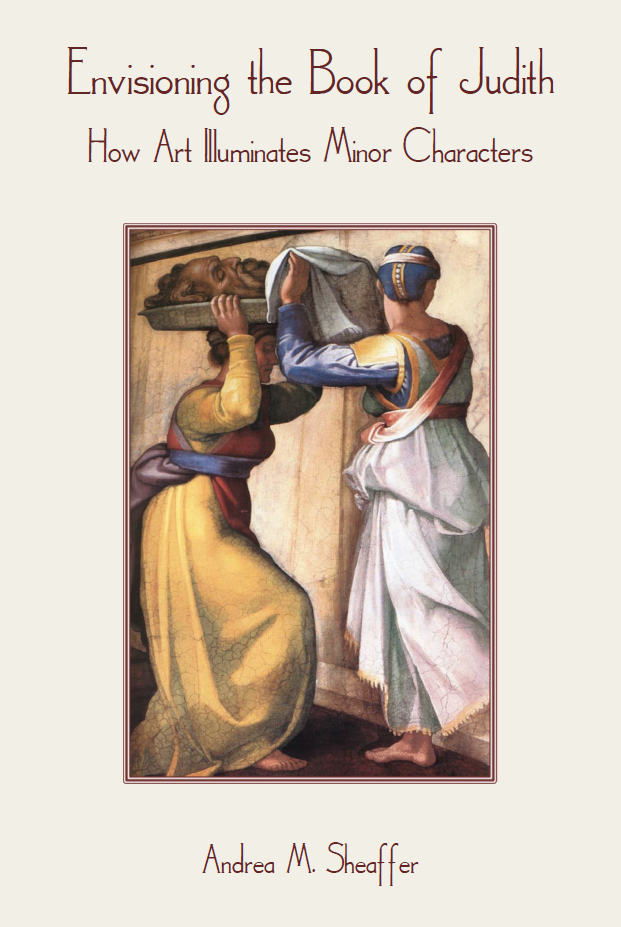
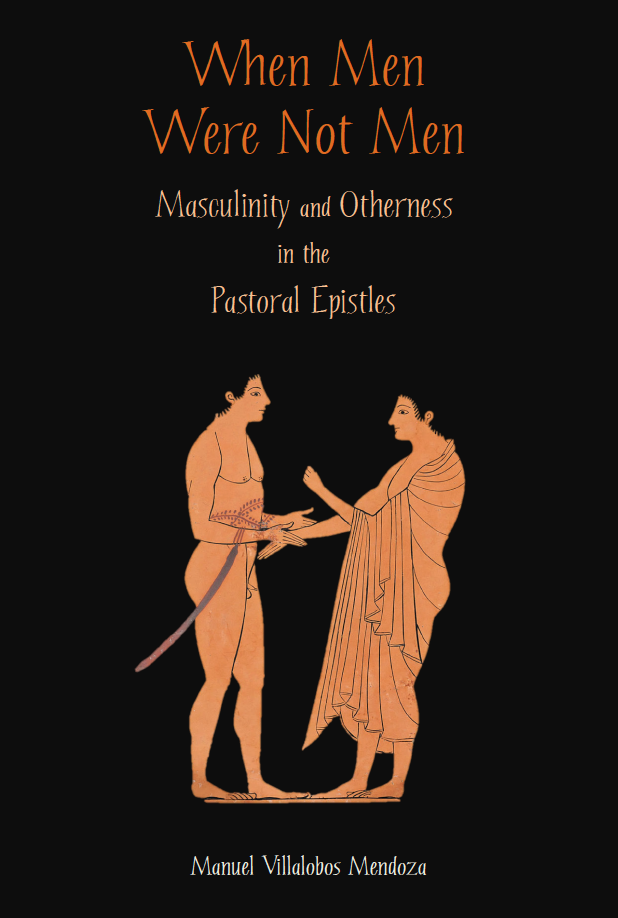
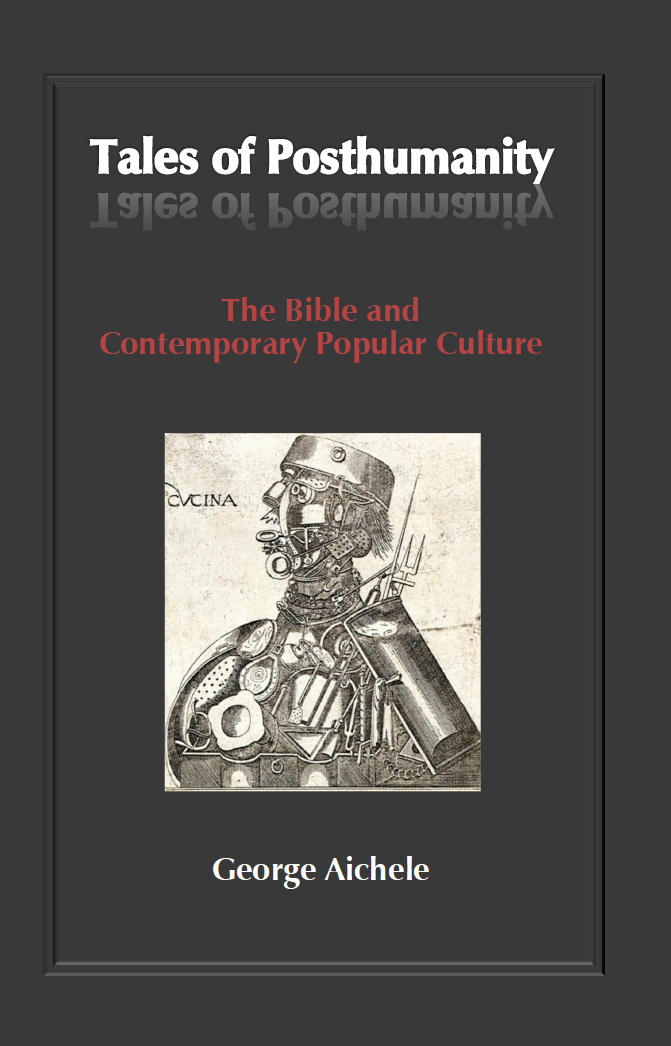
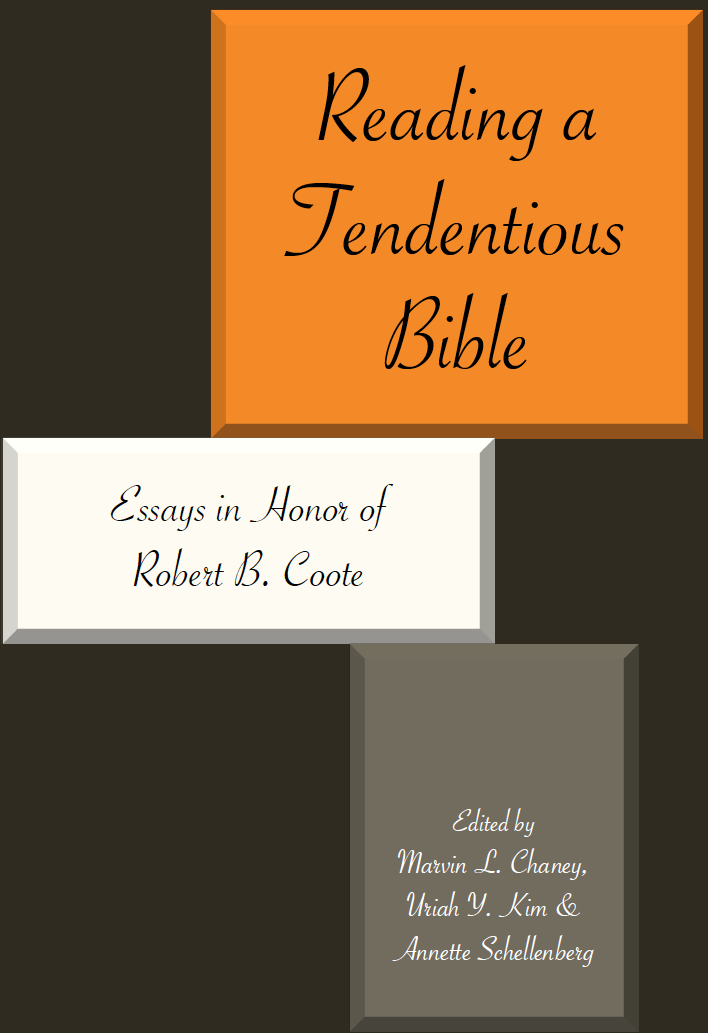

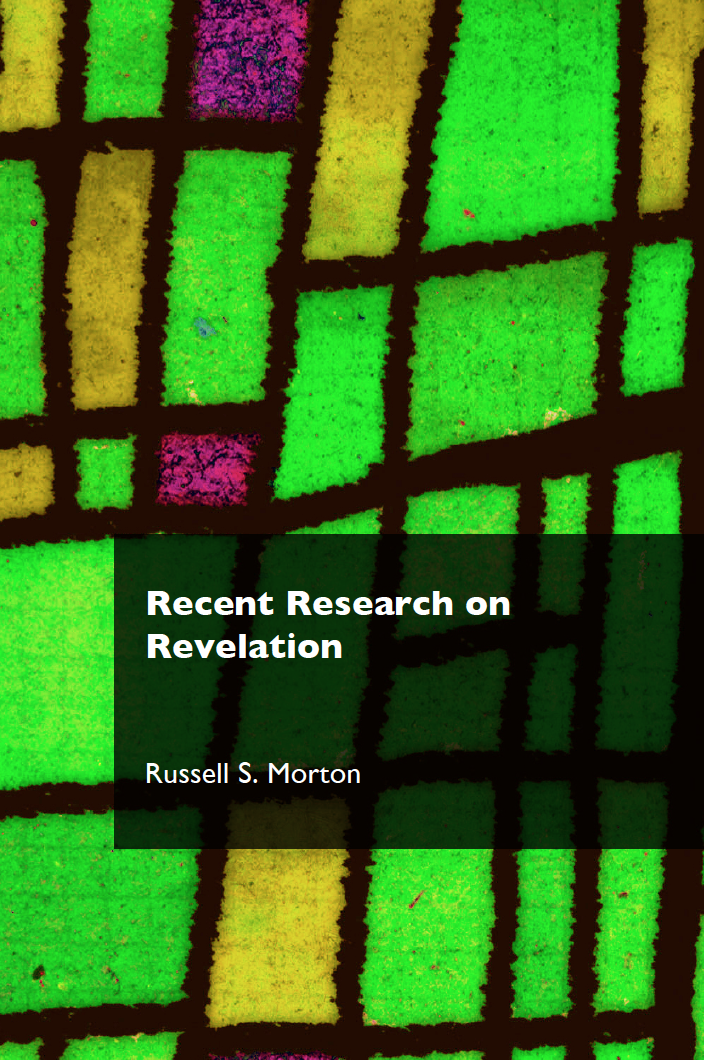

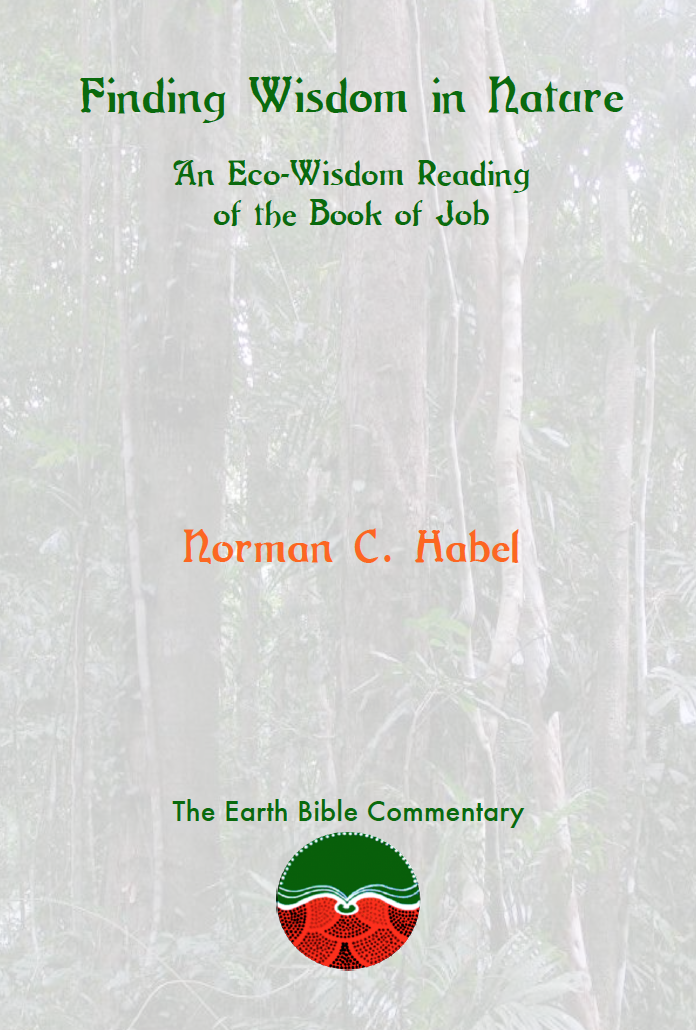
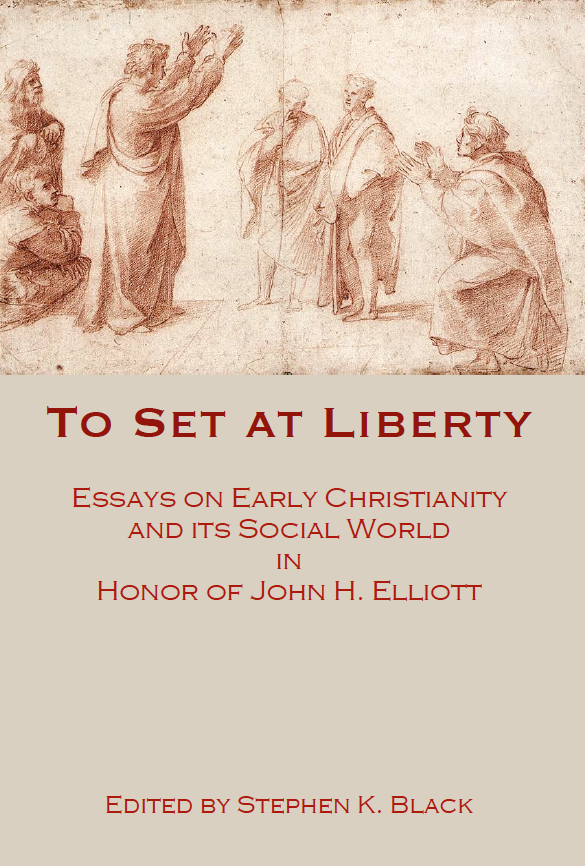
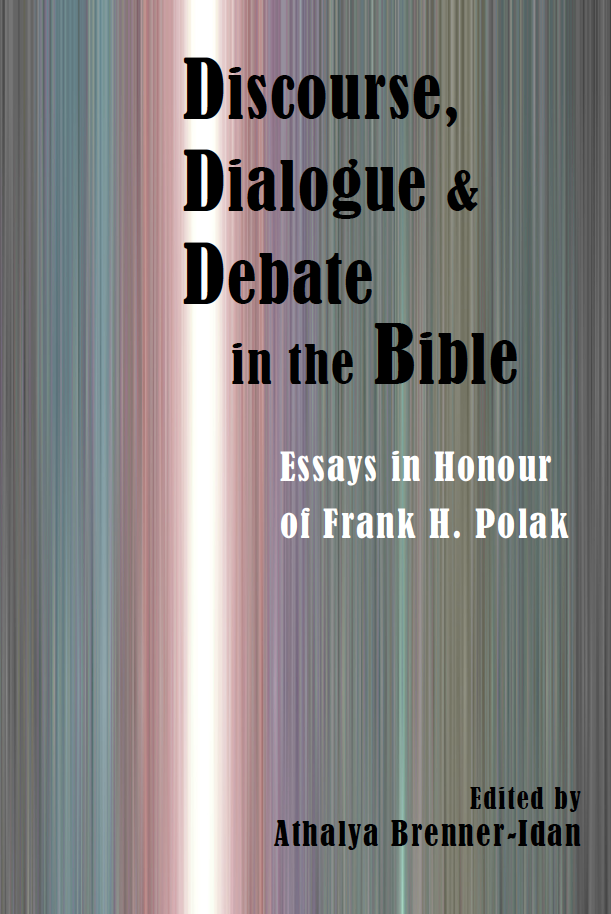
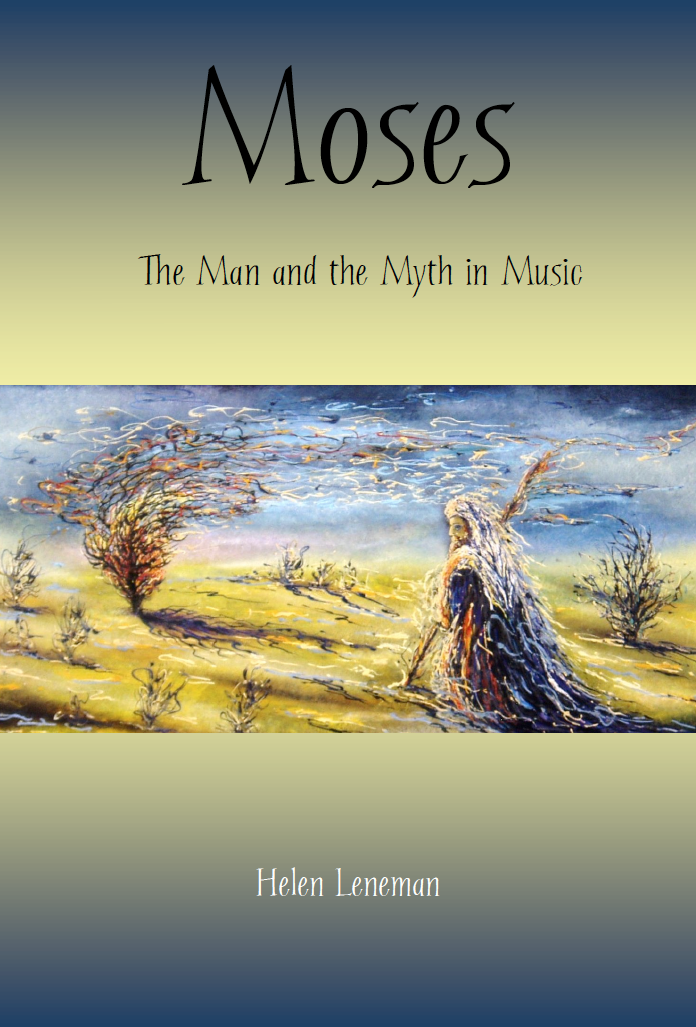

Proverbs
Proverbs